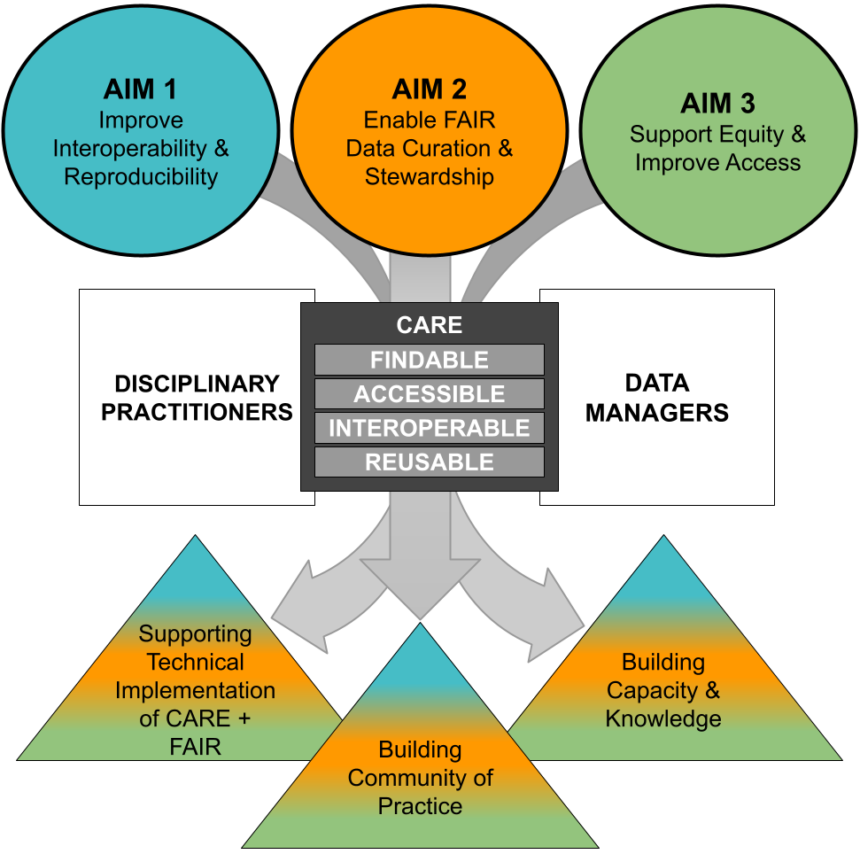New NSF FAIROS RCN grant to advance ethical open science

We are thrilled to announce Disciplinary Improvements for Past Global Change Research: Connecting Data Systems and Practitioners, a National Science Foundation Findable, Accessible, Interoperable, Reusable Open Science Research Coordination Networks (FAIROS RCN) grant to advance ethical scientific practices in the use of paleoecological, contemporary ecological, paleoclimatic, and archaeological data. Our overarching aim is to build technical and social capacity among data resources by supporting technical implementation of ethical open science applications and developing communities of practice around FAIR and CARE (Collective benefit, Authority to control, Responsibility, and Ethics) open science principles. Specifically, our project will:
Improve interoperability and reproducibility of data by developing guidance for community-curated data resources across the paleoecology and archaeology disciplines, and promote adoption of broader metadata standards for interconnectivity of data.
Enable data curation and stewardship by promoting FAIR data curation principles among practitioners, especially through engagement with early-career researchers. These practices will help maximize the scientific and educational value of data created and shared across different disciplines and communities.
Support data equity and improve democratization by promoting CARE data curation principles. These principles align scientific data curation with broader culturally inclusive community needs and interests. They help foster partnerships and collaborations with Indigenous and other community stewards of natural and cultural heritage.
This project provides broad participative support and guidance for these goals by bringing together data managers from a variety of specimen and environmental data resources, including the Neotoma Paleoecology Database, Open Context, ZooArchNet, NEON, and iSamples; metadata stewards; disciplinary practitioners; and early-career researchers. We believe that open science requires a foundation of welcoming collaboration, mutual support, and partnerships across communities.
For more information about all the inaugural FAIROS RCN funded projects, please see this announcement published by the Association of Research Libraries.
This project is supported by the National Science Foundation: NSF-2226368 to Jessica Blois (University of California - Merced), NSF-2226369 to Jack Williams and Simon Goring (University of Wisconsin - Madison),NSF-2226370 to Kitty Emery and Michelle LeFebvre (University of Florida) and Suzanne Pilaar Birch (University of Georgia), NSF-2226371 to Andrea Thomer (University of Michigan, now at U. Arizona), NSF-2226372 to Meghan Balk (NEON), and NSF-2226373 to Leigh Anne Lieberman (The Alexandria Archive Institute/Open Context). For more information, consult the linked individual NSF award abstracts.
Posted September 23, 2022 by Jessica Blois
 neotomadb.org
neotomadb.org